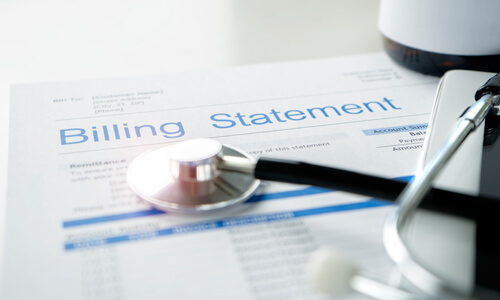Not being able to pay your bills can be stressful. Whether it’s due to a lost job, unforeseen medical expenses, or other circumstances, you may be unsure how to deal with them. Fortunately, you can take specific actions and seek help from a variety of organizations. Let’s take a look at the steps that will help you tackle your bills and where you can find assistance to pay them.
If you can’t pay your rent or mortgage
If you can’t afford to pay your rent or mortgage, it’s essential to act quickly.
If you’re a renter, notify your landlord about your situation as soon as possible. Many landlords appreciate tenants who take the initiative to contact them before they’re late with the rent and who offer to pay what they can. You may be able to work out a rent payment plan with your landlord or perhaps offer to do some work around the building in exchange for rent. Just make sure that you get something in writing that provides all of the details. A housing counselor can also provide advice on rental assistance options.
If you can’t pay your mortgage, notify your mortgage servicer (the company to whom you send your mortgage payment) as soon as possible. The earlier you get in touch with them, the more likely they’ll be able to work with you. If you need help paying your mortgage, you may be able to work out a loan modification. A modification may extend the length of time for repayment, reduce your interest rate, or refinance your current mortgage with a different type of loan. Lenders usually grant loan modifications only when a borrower can’t repay the loan under its original terms. Be advised that loan modifications may affect how the loan is reported on your credit report, though not as much as delinquent payments.
Other resources for renters and mortgage holders struggling to make their payments include:
- 211: United Way’s 211 service can provide referrals to local services and resources that can help you pay housing costs and other bills). Just dial 2-1-1 for assistance or search the organization’s website.
- Legal Help FAQ: This online tool helps renters find information on local laws concerning landlord-tenant issues and organizations that can help with housing assistance.
- HUD: This federal agency provides counselors to help mortgage holders when lenders are reluctant to work with them on repayment plans.
If you can’t pay other types of bills
These suggestions will help you address common types of bill payments:
- Utilities, phone and internet bills: Many utilities offer programs, such as payment plans or short-term discounts, if you can’t pay your bill in full. Some companies also work with the federal government’s Low Income Home Energy Assistance Program and Weather Assistance Program (LIHEAP), as well as local nonprofits, to find financial assistance for qualifying customers to pay energy bills. Lifeline is a federal government program that lowers the monthly costs for phone or internet services for qualified households.
- Student loans: The federal government offers several student loan forgiveness and debt relief. For example, you may qualify for the Saving on a Valuable Education (SAVE) plan, which will reduce your monthly student loan payments. 211.org’s student loan savings calculator can help you explore repayment options.
- Credit card bills: First, call your card issuer to explain your situation and ask about setting up a repayment plan or whether they have any hardship programs. You can also seek credit counseling.
- Medical bills: Unforeseen medical expenses can strain any budget. This article provides tips on how to dispute and pay large medical bills.
- Food: Administered by state governments, SNAP (food stamps) and WIC are the two major federal programs that provide food assistance for low-income families. Feeding America’s online tool will help you find food pantries, soup kitchens, and other food-assistance organizations in your community.
Additional assistance options
If you need financial assistance, it’s sometimes better to start at the local level. It’s typically faster and easier to get money from a city, county or even community program than through state or federal ones. Find out what kind of assistance programs your city or county offers. Local nonprofit organizations may also be able to help. Local newspaper and local government websites should have information on what’s available. You can then turn to federal programs that help people facing financial hardships.
You can also pursue other financial assistance options. Debt relief involves restructuring your debt so that it’s easier to pay what you owe. Individual lenders may work with you on a debt relief plan, and you can seek help from debt relief companies and credit counseling agencies. Types of debt relief include:
- Debt consolidation loan: Available through financial institutions and other lenders, this type of loan rolls up all of your debts into a single loan.
- Debt management plan: You pay your debts by working with a credit counseling agency that develops a payment schedule agreeable to you and your creditors.
- Debt settlement programs. Usually operated by for-profit companies, these programs typically focus on credit card debt. The company negotiates with your creditors to let you pay an amount that’s lower than what you owe. These programs can be risky, so be sure you understand how they work and research the companies you’re considering.
Why it’s so important to pay your bills
Not paying your bills can lead to a wide range of financial difficulties. Slipping into debt will cost you even more money because late fees and interest fees quickly add up. Not paying your bills on time will hurt your credit score. A low credit score makes it more expensive to borrow money and more difficult to qualify for a mortgage or get a lease application approved. A low credit score can also affect your job prospects.
Unpaid debts can also disrupt your life, potentially leading to nightmares like losing housing due to an eviction or mortgage foreclosure, repossession of your car, lawsuits, and loss or interruptions of phone, internet or utility services. Debt collectors seeking payments may call you repeatedly. If your debt gets too out of control, it may take months or even years for your finances to recover.
Getting back on firmer financial footing will help you strengthen your financial wellness, which can in turn improve your quality of life and enrich your future. Good luck!







Comments Section
Please note: Comments are not monitored for member servicing inquiries and will not be published. If you have a question or comment about a Quorum product or account, please visit quorumfcu.org to submit a query with our Member Service Team. Thank you.